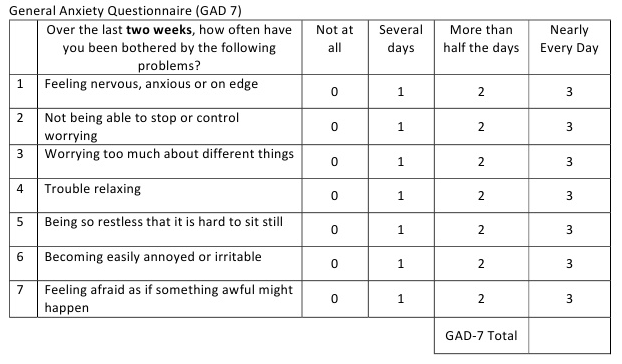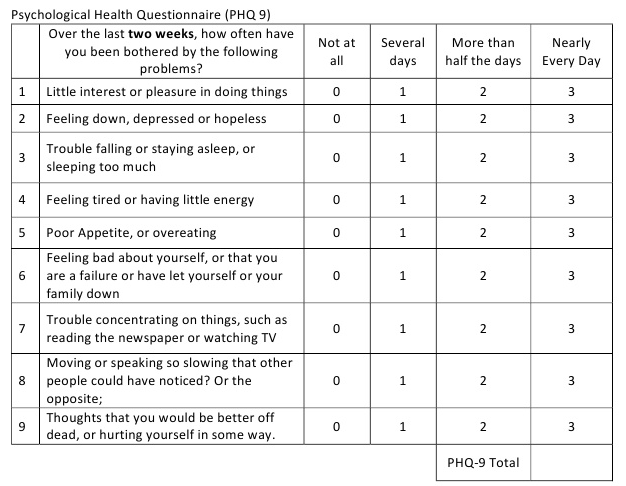Anxiety and depression
It is hardly surprising with the pressures of modern life that anxiety and depression are a cause for concern for many nowadays. By far the largest number of visitors to my site had been following links to these topics with several looking to find out more about symptoms, signs and even tests for depression and anxiety.
The two tests below
only provide an indication, a rough guide and are no substitute for competent
one-to-one medical advice. Our moods and the influences around us can vary
throughout the day, individual interpretations of the questions may vary.
Anxiety
“A state of enhanced sensitivity to threat. Unlike fear, which is focused on a specific threat or threats and subsides when these are dealt with, anxiety is characterised by a constant search for sources and high and persistent autonomic arousal” (being ready to fight or flee.)
In other words, having a powerful and active personal radar that is always on the lookout for trouble. This may have developed from a real need for self preservation in the past, but is now just a continual drain on mental and physical strength.
Anxiety can be experienced as a general disorder, or in usually more intense recurring panic attacks - periods of intense fear or discomfort accompanied by a range of physical or mental symptoms and sense of imminent danger or impending doom and urge to escape. They can be spontaneous, following traumatic experiences or triggered by specific events or situations.
The test below covers the main symptoms, where the main defining feature is excessive anxiety and worry. Where panic attacks are occurring, these should be explored in a face-to-face assessment.
Select which number on each line feels relevant for you, add them up then check below for possible action.

As a general guideline, the bands are mild (0-5), moderate (6-10), moderately severe (11-15) and severe (15-21), scores over 10 particularly warrant following up. If they are low but you still have concerns, please do take further action.
Therapists can help by providing acceptance, understanding and reassurance, as well as by giving practical help generally with information about skills and techniques - we do have a fairly large 'tool box' of these available, some will be more appropriate, effective or resonate more readily with different clients. More specifically, therapists may also help regarding problem-solving and identifying specific root issues.
Being continually anxious can be very wearing – to the extent that it is sometimes confused with depression.
Depression
“A transient mood or chronic feeling state characterised by hopelessness, despair, sadness, a sense of meaningless, low self-esteem and apathy.”
Often worse at the beginning of the day, depression is not the same as sadness (but they can occur at the same time.)
There may be an external cause such a loss, or depression can have an internal cause. Depressed people are often passive, although they can instead be restless and agitated.
The test below is not a test to screen for depression, but rather a way to monitor severity (as well as response to treatment.) As above, add up your scores and see below.

The bands here are none (0-4), mild (5-9), moderate (10-14), moderately severe (15-19) and severe (20-27).
Psychotherapy is suggested for scores of 10 and above, as well as a possible benefit that could be gained from medication. The higher the score, the greater the likely need for one or both. If you have any doubts or queries please contact your GP and/or a qualified therapist.
Surprising as it may sound, talking about how awful we feel can bring enormous relief – although it is best if the listener is experienced at listening closely, providing the right questions, comments and feedback at the right time and knowing when to keep quiet when appropriate. They should also have sufficient resilience to successfully carry out this task, as well as enough training to spot issues relating to trauma and respond appropriately.
Please remember - in all cases where there are concerns about physical or mental health and well-being, it is best to rely on seeing a professional in person rather than relying on general online information. If you have worries, please talk to someone.
